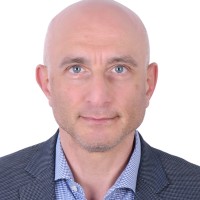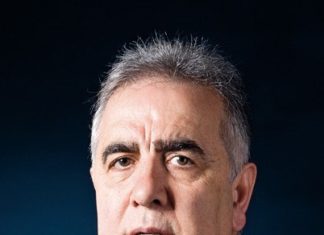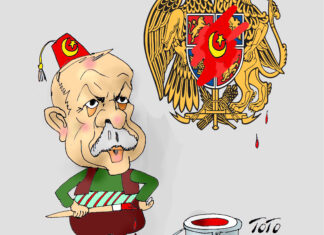By Berge Jololian
Ilham Aliyev is a name that should strike fear into the hearts of journalists, opposition figures, and anyone who still believes in minor inconveniences like free speech and democracy. Continuing the proud tradition of nepotism-fueled authoritarianism, Aliyev proves that dictatorship is a family business, much like Assad’s, except with a discount dictator flair.
Much like his idol Vladimir Putin (because what’s a modern autocrat without a role model?), Aliyev has mastered the art of rigging elections, silencing critics, and striking convenient deals with fellow strongmen. If Putin is the blockbuster villain of global politics, then Aliyev is the straight-to-DVD knockoff — lacking originality but still managing to wreak havoc. And let’s not forget his big brother in dictatorship, Recep Tayyip Erdogan, who provides backing, military aid, and diplomatic cover whenever Aliyev needs a helping hand. They practice the same brand of strongman rule — consolidating power, crushing dissent and rewriting history while pretending democracy is alive and well.
Aliyev’s regime doesn’t just stop at jailing critics — it takes things up a notch with police brutality, forced confessions and extrajudicial punishment. International watchdogs have repeatedly pointed out Azerbaijan’s widespread use of torture, which the government insists is merely an “enhanced hospitality program” for dissidents. Even Azerbaijan’s state-controlled institutions, not exactly known for self-reflection, admitted that at least 452 individuals were subjected to physical abuse in 2022 alone. That’s a level of self-awareness you don’t often see from a dictatorship.
Criticism is met not with rebuttals, but with arrests, exile, or worse. Gubad Ibadoghlu, an academic and economist, learned this the hard way when he was thrown into prison on charges even Azerbaijan’s state media struggled to justify. Human rights advocate Anar Mammadli has been trapped in a revolving door of arrests and releases for years, simply for daring to speak out. Aliyev’s approach to dissent is simple: if you can’t convince them, jail them.
Azerbaijan is a paradise — if your idea of paradise includes state-controlled news, arbitrary arrests of journalists, and a total ban on independent reporting. The country proudly ranks near the bottom of the global Press Freedom Index, proving that Aliyev is deeply committed to making sure no one tells the truth about his rule. In 2014, he forcibly shut down the offices of Radio Free Europe/Radio Liberty, presumably because their commitment to facts was getting in the way of his government’s carefully curated fantasy world.








